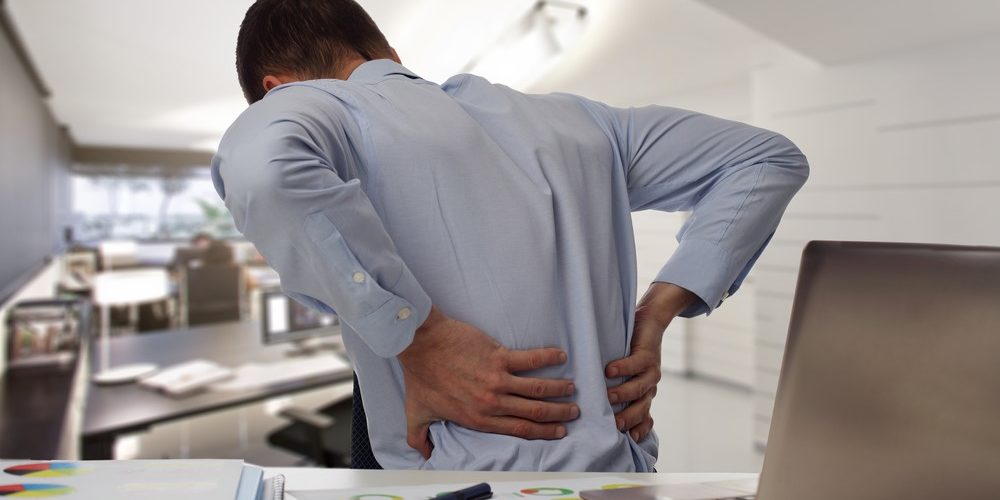 Back pain is one of the leading causes of lost time from work and is the leading cause of disability throughout the world. Here are some tips for preventing pain and injury at work:
Back pain is one of the leading causes of lost time from work and is the leading cause of disability throughout the world. Here are some tips for preventing pain and injury at work:
- Lift properly. Bend at your knees and keep the item you are lifting close to your body. If something is too large or heavy for you to move on your own, ask for assistance.
- Pay attention to posture. Keep your back straight and aligned with your head over your spine, and your feet flat on the ground. Do not cross your legs or twist your body, which can stress the spine.
- Personalize your workspace. If you work at a desk, be certain your chair and office are set up ergonomically. Your feet should be flat on the floor or on a footrest, and the height of the chair should allow your thighs to be parallel to the floor. The height of your desk should be at elbow level. Keep your computer monitor at eye level and consider using a standing desk, so you can easily alternate between sitting and standing. This can prevent injury since prolonged sitting is linked to back pain. When you are seated, support your lower back with a pillow or rolled up towel if your back does not reach the back of the chair. Also remember to remove things from your back pockets, such as a wallet, which can cause pelvic “unleveling.”
- Stretch. It’s important to get up and take short breaks to move. Try setting an alarm once per hour as a reminder to stand up and walk around.
- Strengthen your core. Increasing your core strength and stability through exercise is extremely important for preventing back pain and injury. Try to exercise at least three times per week.
- Lose weight. If you’re overweight, the extra pounds can add significant strain on your muscles and joints. Losing weight will not only improve your overall health, but can have a significant impact on reducing and preventing back and neck pain.
- Don’t smoke. Smoking decreases blood supply to your spine which can perpetuate a back injury. If you do smoke, you should quit.
If you sustain an injury, treat it with:
- Ice to reduce pain, spasm, and inflammation.
- Over the counter oral and topical pain relievers.
- Rest for a short period of time.
- Medical attention if the pain persists, begins to radiate, or becomes progressively worse.
David J. BenEliyahu, DC, DAAPM, DABCSP is the Administrative Director of the Back & Neck Pain Center at Mather Hospital.

